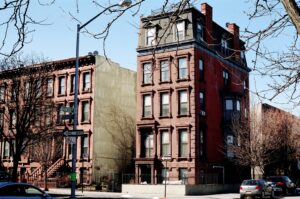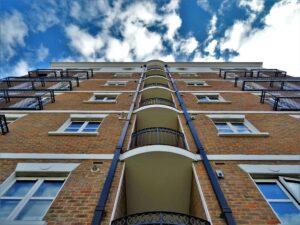SAN FRANCISCO, CA – December 15, 2023 – EducationSuperHighway, the national non-profit with a mission to close the broadband affordability gap, today congratulated Louisiana on becoming the first state to have its Initial Proposal for the Broadband Equity, Access, and Deployment (BEAD) program, approved by The Department of Commerce’s National Telecommunications and Information Administration (NTIA).
Reaching this milestone means the state may now request access to 20% or more of the $1,355,554,552.94 that NTIA allocated to the state as part of the $42.45 billion state grant program authorized by President Biden’s Bipartisan Infrastructure Law to expand affordable and reliable high-speed internet access in communities across the U.S.
EducationSuperHighway will be a statewide partner for developing Louisiana’s strategy for deploying Wi-Fi solutions in multi-family dwelling units (MDUs). The non-profit helps states leverage federal broadband funding to launch Free Apartment Wi-Fi programs that can close the 20-25% of America’s digital divide concentrated in affordable apartment buildings. Modeled after how Wi-Fi is delivered in most hotels today, Free Apartment Wi-Fi programs are the most cost-effective way to bring reliable, high-speed internet to 6.5 million unconnected people who lack home broadband.
“We congratulate the state of Louisiana and the ConnectLA team on today’s announcement that is a critical milestone in dramatically accelerating progress toward closing Louisiana’s digital divide,” said Adeyinka Ogunlegan, Vice President of Government Affairs and Policy at EducationSuperHighway. ‘”By committing BEAD funding to deploy Wi-Fi in MDUs and following NTIA’s challenge process guidance to determine which of these additional buildings needs to be prioritized, Louisiana is now one step closer in its historic effort to leverage federal funds to bring reliable, affordable internet access to all residents.”
Since the start of the pandemic, EducationSuperHighway has been piloting Free Apartment Wi-Fi networks in affordable apartment buildings and has found it to be one of the most cost-effective ways for states to close the digital divide. Access to home internet increases the annual income of an under-resourced American household by $2,000, which is three times the $650 average cost to connect an apartment and a potential economic impact of $7.8 billion every year.
Through its participation in ConnectLA’s MDU Challenge Process, the non-profit successfully filed challenges for 177 buildings, ensuring the state has an accurate list of unserved or underserved buildings. Louisiana is one of 42 states that have included NTIA’s BEAD Challenge process in their proposed plans, enabling them to ensure all eligible MDUs are eligible for funding. ConnectLA also included an optional module in its BEAD Initial Proposal modifying locations with a DSL connection from “served” to “underserved.”
Nearly two-thirds of unconnected U.S. households have access to a home broadband connection but are offline primarily because they cannot afford to connect. This “broadband affordability gap” keeps 47 million Americans offline. With its mission to close the gap, EducationSuperHighway previously partnered with ConnectLA to address broadband affordability in its Digital Equity Plan. They also recently worked alongside Governor John Bel Edwards, Commissioner of Higher Education Kim Hunter Reed, and ConnectLA to increase awareness of the Affordable Connectivity Program (ACP) in the Pelican State.
ENDS
ABOUT EDUCATIONSUPERHIGHWAY
EducationSuperHighway is a national non-profit with the mission to close the digital divide for the 18 million households that have access to the internet but can’t afford to connect. We focus on America’s most unconnected communities, where more than 25% of people don’t have internet.
From 2012-2020, we led the effort that closed the classroom connectivity gap. In 2013, only 10% of students had access to digital learning in their classrooms. Today, thanks to an unprecedented bi-partisan effort by federal, state, and school district leaders, supported by K-12 advocacy organizations, the classroom connectivity gap is closed – 47 million students are connected, and 99.3% of America’s schools have a high-speed broadband connection.



